Zelensky’s Big Pitch to Munich
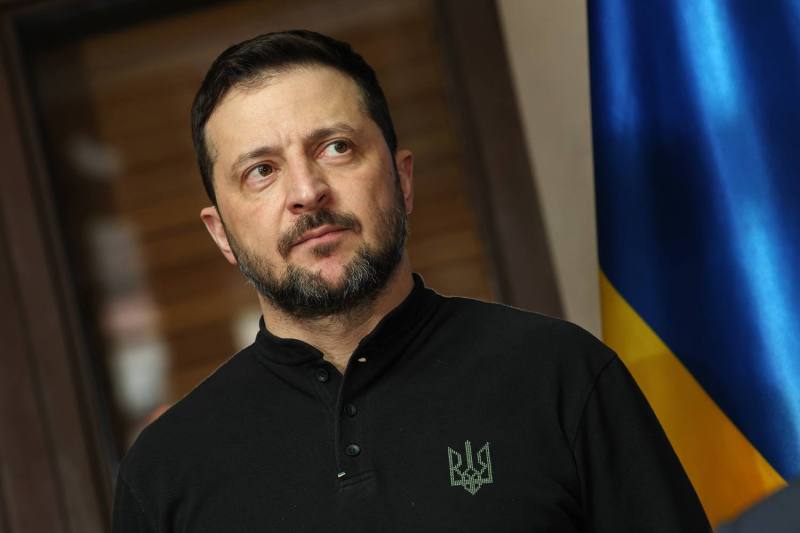
Zelensky’s Big Pitch to Munich
The Ukrainian president called for Europe to build an army.
Ukrainian President Volodymyr Zelensky arrives to meet with German Chancellor Olaf Scholz at the Munich Security Conference in Munich on Feb. 15. Sean Gallup/Getty Images
Welcome to the penultimate day of the Munich Security Conference! This is the last special edition of SitRep from this year’s conference, but fret not: We’ll have more debriefs on what we heard and saw during the event for FP Insider next week, including a behind-the-scenes note from our editor in chief, Ravi Agrawal, as well as our first-ever Insider Access call with Ravi, Rishi, and our colleague Lili Pike.
Alright, here’s what’s on tap for the day: Ukrainian President Volodymyr Zelensky brings the attention back to Russia, French President Emmanuel Macron calls an emergency summit to discuss Ukraine, and Hamas and Israel exchange hostages and prisoners.
Welcome to the penultimate day of the Munich Security Conference! This is the last special edition of SitRep from this year’s conference, but fret not: We’ll have more debriefs on what we heard and saw during the event for FP Insider next week, including a behind-the-scenes note from our editor in chief, Ravi Agrawal, as well as our first-ever Insider Access call with Ravi, Rishi, and our colleague Lili Pike.
Alright, here’s what’s on tap for the day: Ukrainian President Volodymyr Zelensky brings the attention back to Russia, French President Emmanuel Macron calls an emergency summit to discuss Ukraine, and Hamas and Israel exchange hostages and prisoners.
‘Europe Needs to Adjust’
With attendees still processing the waves made by U.S. Vice President J.D. Vance’s Friday speech, the Munich Security Conference (MSC) on Saturday handed the mic back to the man who has been the toast of this town for three years running. Just days before the third anniversary of Russia’s full-scale invasion of Ukraine, Ukrainian President Volodymyr Zelensky took the stage to a standing ovation that lasted almost a full minute and made him visibly emotional.
As conversations continue to swirl in the Trump era of trans-Atlantic relations over who is actually setting the agenda, Zelensky argued that it was actually Russia that is being allowed to do so: “This year, the country that was not even invited still made its presence known, a country that everyone talks about here—not in a good way.” He mentioned Russia’s strike on the shuttered Chernobyl nuclear power plant in Ukraine on the eve of the MSC, adding that “a country that launches such attacks does not want peace, is not preparing for dialogue.”
His statements hit on the two biggest talking points during the conference since U.S. President Donald Trump called Russian President Vladimir Putin earlier in the week to “start negotiations immediately” on a deal to end the conflict: what such a deal will look like and who will get a seat at the table as it’s worked out.
Zelensky brought up migration—an issue Vance spent much of his speech on—albeit in a different context, mentioning Russia’s alleged role in sending migrants across the border of Russian ally Belarus into NATO members Poland and Lithuania. “What if next time it’s not migrants? What if it’s Russian troops or North Korean troops?” he said.
He followed that more oblique reference by calling out Vance (and Europe) directly: “Yesterday here in Munich, the U.S. vice president made it clear: Decades of the old relationship between Europe and America are ending. From now on, things will be different, and Europe needs to adjust to that,” he said. “I believe in Europe, and I’m sure you believe, too. And I urge you to act for your own sake.”
The solution, Zelensky said, is establishing a dedicated military force for the entire continent of Europe. “This is not just about increasing defense spending as a GDP ratio,” he said, mentioning another of the conference’s pet discussion topics. “It’s about people realizing they need to defend their own home. … Three years of full-scale war have proven that we already have the foundation for a united European military force.”
“The most influential member of NATO.” The Ukrainian president also addressed a statement that another Trump official, Defense Secretary Pete Hegseth, made this week in Brussels that “the United States does not believe that NATO membership for Ukraine is a realistic outcome of a negotiated settlement.” (Hegseth later partially walked back those comments, saying nothing was off the table.) “I also will not take NATO membership for Ukraine off the table,” Zelensky said. He then threw a pointed barb at the alliance itself: “Right now, the most influential member of NATO seems to be Putin,” he said, “because his whims have the power to block NATO decisions.”
Other European officials whom SitRep spoke to say NATO membership for Ukraine should always be an option, even if it doesn’t appear in the cards immediately. “It took around 10 years for Estonia to become a member of NATO; it took decades for Sweden. So we will never exclude the possibility for Ukraine to be a member of NATO in one day,” Estonian Defense Minister Hanno Pevkur said. “Will it happen during the next four years? According to what Defense Secretary Hegseth said to us, probably not.”
View from the borderlands. As a NATO and European Union member and fellow neighbor of Russia, Estonia has perhaps a greater appreciation than most for Ukraine’s plight and a bigger stake in its fate. Speaking to SitRep on the sidelines of the conference on Saturday, Estonian Foreign Minister Margus Tsahkna echoed a sentiment that Zelensky had expressed: that despite Trump’s overtures, Putin is in a weak position, and it’s important not to give away too much leverage.
“Putin has failed. He planned a three-day special operation [in Ukraine], and now instead of that, he’s waging a third year of war with no strategic breakthroughs,” Tsahkna said. “Now he wants to get results during the negotiations that he did not get during the war.”
On the Button
What should be high on your radar, if it isn’t already.
More mixed messaging. Trump’s envoy for Russia and Ukraine, Keith Kellogg, did little to allay fears of European countries being sidelined in negotiations for a Ukraine peace deal, saying on Saturday that Europe would not directly be part of the process. Speaking on the sidelines of the conference, Kellogg urged European countries to earn their seat at the table by putting forward “concrete proposals, ideas” and ramping up defense spending.
Meanwhile, French President Emmanuel Macron, who is not in Munich this week, has called an emergency meeting of European leaders in Paris to discuss a response to the Trump administration’s tactics. The meeting is expected to take place on Monday, Politico reported.
Damage control. The U.S. congressional delegation in Munich has spent the past 24 hours trying to reassure Washington’s European allies and partners not to panic after Vance’s speech and Hegseth’s pre-MSC remarks.
“We’ve … been pointing out that it is Trump’s management style to let senior people run around and say very discordant things and pick out the action that he likes,” Sen. Sheldon Whitehouse told a small group of reporters at the Bayerischer Hof. “It doesn’t mean that some of the bad stuff that is being said isn’t still dangerous, but it does mean that it is not necessarily policy,” he added. “So Europe and the U.K. have to be alert to those dangers, but they don’t have to go into an immediate full-scale panic.”
As for Vance’s speech itself? “It’s fair to say that he bombed,” said Whitehouse, a Democrat, who added that it was also “not favorably reviewed” by many Republican lawmakers on the ground in Munich either.
Hostage release. Hamas on Saturday freed three Israeli hostages in exchange for Israel releasing nearly 400 Palestinian prisoners, maintaining—for now—a cease-fire that had begun to look precarious earlier in the week. Hamas had previously accused Israel of violating the cease-fire and said it would delay the release of those hostages “until further notice,” prompting Israeli Prime Minister Benjamin Netanyahu to say Israeli forces would resume “intense fighting” in Gaza if the hostages weren’t returned.
Snapshot
Keith Kellogg, the U.S. special envoy for Russia and Ukraine, and German Foreign Minister Annalena Baerbock are seen together walking to a meeting during the Munich Security Conference in Munich on Feb. 14.Boris Roessler/Getty Images
Overseen in Munich
There were several candidates for this section today, with many current and former officials and lawmakers spotted, but we ultimately settled on this diplomatic dispatch from outside the Bayerischer Hof from FP deputy editor Cameron Abadi:
The Munich Security Conference has offered plenty of reason to think that Trumpworld is more interested in posturing than diplomacy, but there has been at least one instance to the contrary.
On Saturday afternoon, French Foreign Minister Jean-Noël Barrot was scheduled to give an impromptu news conference in front of the hotel. As a group of international journalists crowded at the appointed traffic island while struggling to stay warm, a conference organizer quietly conferred with a police officer before approaching a French communications officer. Apparently, Secretary of State Marco Rubio was planning to soon exit the hotel and cross through the same traffic island, as it lay on a direct route to his next appointment. The implication was clear: Make way for Rubio.
The nonplussed French press person was unsure what to do with this information; his foreign minister had already claimed this portion of the sidewalk. There was other asphalt where the journalists could pose their questions, to be sure. But what sort of message would that send? The press officer didn’t want to be uncooperative but was clearly searching for some way to save face.
The conference organizer, conducting the next round of her shuttle diplomacy, entered the hotel and returned five minutes later. Rubio had agreed to walk around the traffic island. Now Barrot was free to spread his preplanned message with journalists: that the United States would not be permitted to impose itself on Europe.
Put on Your Radar
Sunday’s MSC program, in Munich time (GMT+1):
9:15 a.m.: Finnish President Alexander Stubb, Latvian President Edgars Rinkevics, Icelandic Prime Minister Kristrun Mjoll Frostadottir, and Croatian Prime Minister Andrej Plenkovic speak on a panel about Europe’s security architecture.
10:30 a.m.: A panel on Balkan countries’ accession to the EU featuring North Macedonian Prime Minister Hristijan Mickoski, Albanian Prime Minister Edi Rama, European Parliament President Roberta Metsola, and Marta Kos, Europe’s commissioner for enlargement.
1 p.m.: Conference closes.
Quote of the Day
“We don’t have a percentage. We have stuff.”
—Finnish President Alexander Stubb to FP’s Ravi Agrawal in an FP Live interview at Munich, arguing that actual materials and capabilities are more relevant than GDP-based defense spending targets.
Today’s Most Read
- Jubilation in Moscow Over Trump’s Gifts to Putin by Alexey Kovalev
- How Big Does Donald Trump Think Greenland Is? by Nick Danforth
- The Only Viable Peace for Ukraine by Vasyl Filipchuk
Rishi Iyengar is a reporter at Foreign Policy. X: @Iyengarish
Keith Johnson is a reporter at Foreign Policy covering geoeconomics and energy. X: @KFJ_FP
More from Foreign Policy
-

Russian President Vladimir Putin looks on during a press conference after meeting with French President in Moscow, on February 7, 2022. The Domino Theory Is Coming for Putin
A series of setbacks for Russia is only gaining momentum.
-

The container ship Gunde Maersk sits docked at the Port of Oakland on June 24, 2024 in Oakland, California. How Denmark Can Hit Back Against Trump on Greenland
The White House is threatening a close ally with a trade war or worse—but Copenhagen has leverage that could inflict instant pain on the U.S. economy.
-

Donald Trump speaks during an event commemorating the 400th Anniversary of the First Representative Legislative Assembly in Jamestown, Virginia on July 30, 2019. This Could Be ‘Peak Trump’
His return to power has been impressive—but the hard work is about to begin.
-

US Secretary of State Marco Rubio greets employees at the State Department in Washington, DC, on January 21, 2025. The National Security Establishment Needs Working-Class Americans
President Trump has an opportunity to unleash underutilized talent in tackling dangers at home and abroad.
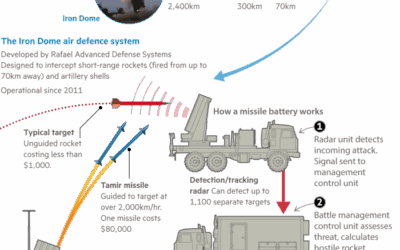
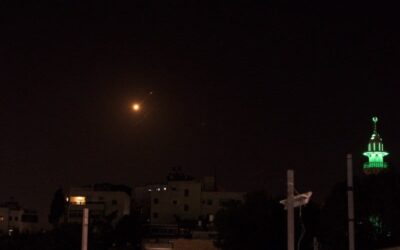

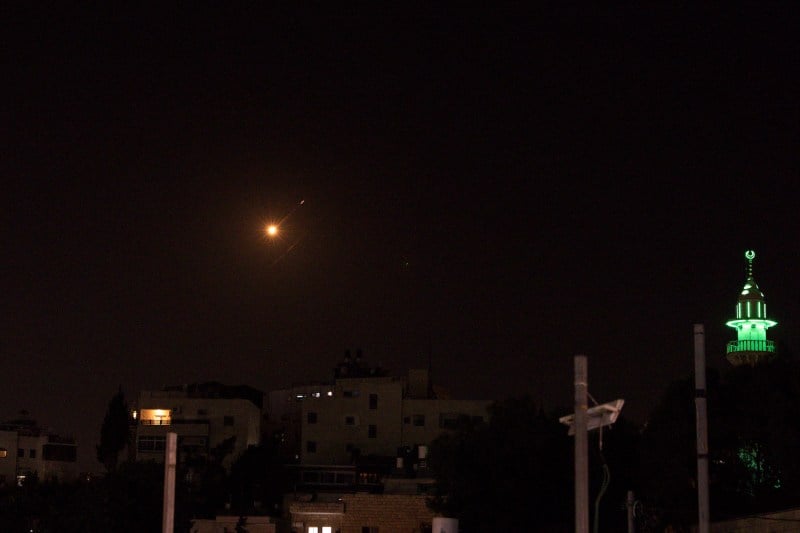
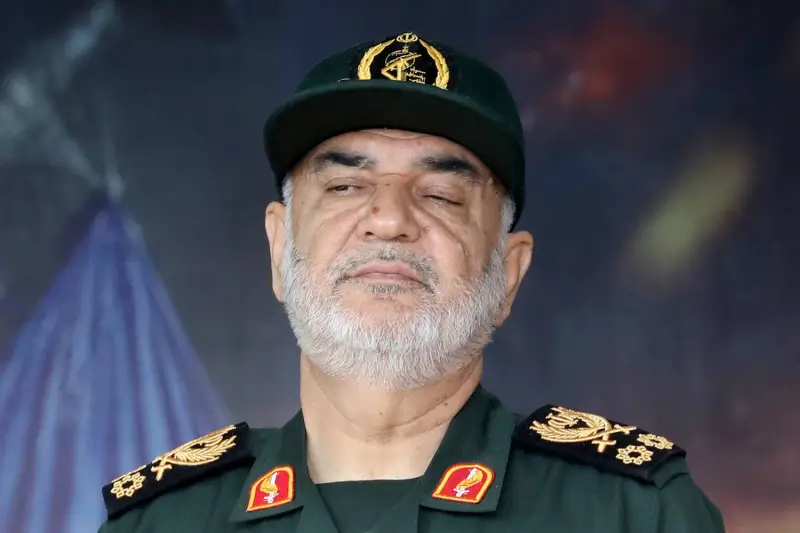
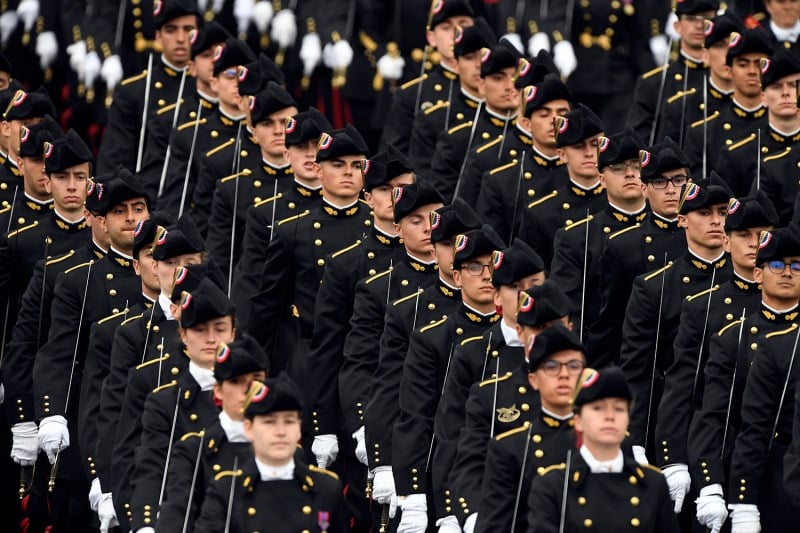
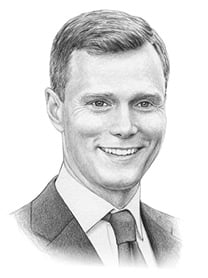
Join the Conversation
Commenting on this and other recent articles is just one benefit of a Foreign Policy subscription.
Already a subscriber?
.
Subscribe
Subscribe
View Comments
Join the Conversation
Join the conversation on this and other recent Foreign Policy articles when you subscribe now.
Subscribe
Subscribe
Not your account?
View Comments
Join the Conversation
Please follow our comment guidelines, stay on topic, and be civil, courteous, and respectful of others’ beliefs.
Change your username |
Log out
Change your username:
CANCEL
Confirm your username to get started.
The default username below has been generated using the first name and last initial on your FP subscriber account. Usernames may be updated at any time and must not contain inappropriate or offensive language.